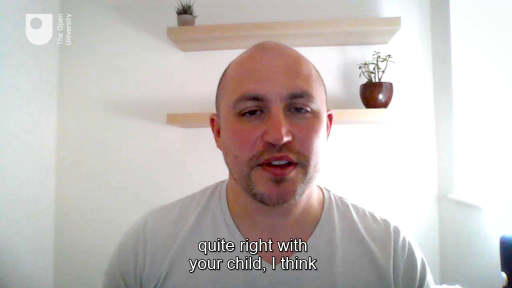2 Talking and listening
If you are worried out your child or a child you work with, it is important that you set aside some time where you can check in with them and get a sense of how they feel and perhaps how they are managing their lives at that time.
Activity _unit7.2.1 Activity 2: Checking in
Watch Video 2 in which counsellor John Goss discusses how you can check in with your child or a child you are working with or know well.

Transcript: Video 2: John Goss: Checking in
As you watch this clip, jot down a few notes on the key suggestions from John.
Discussion
John suggests that it can be helpful for you to show an interest in some of the things that your child is involved in as a way of establishing a common ground for further conversations and perhaps conversations which are difficult. He also thinks it is important to be open with them in telling them that you have noticed something has changed in how they are behaving.
An important first step in understanding how your child or a young person you are working with is feeling is to stop and listen to them. This might sound fairly obvious as we all talk and listen throughout our day and yet listening is quite a complex skill. How can you become a better listener? Perhaps you already think you are really good at listening but need to extend your skills to help a young person who is struggling.
